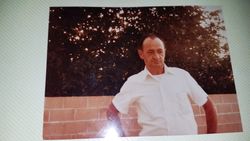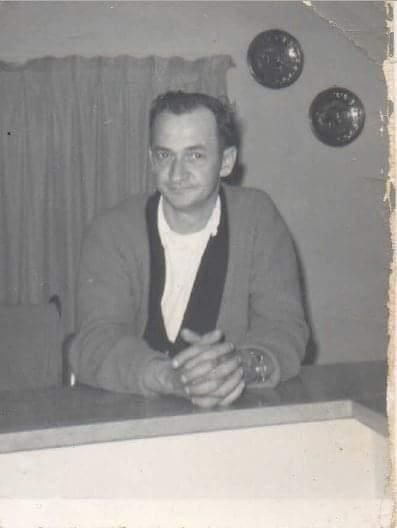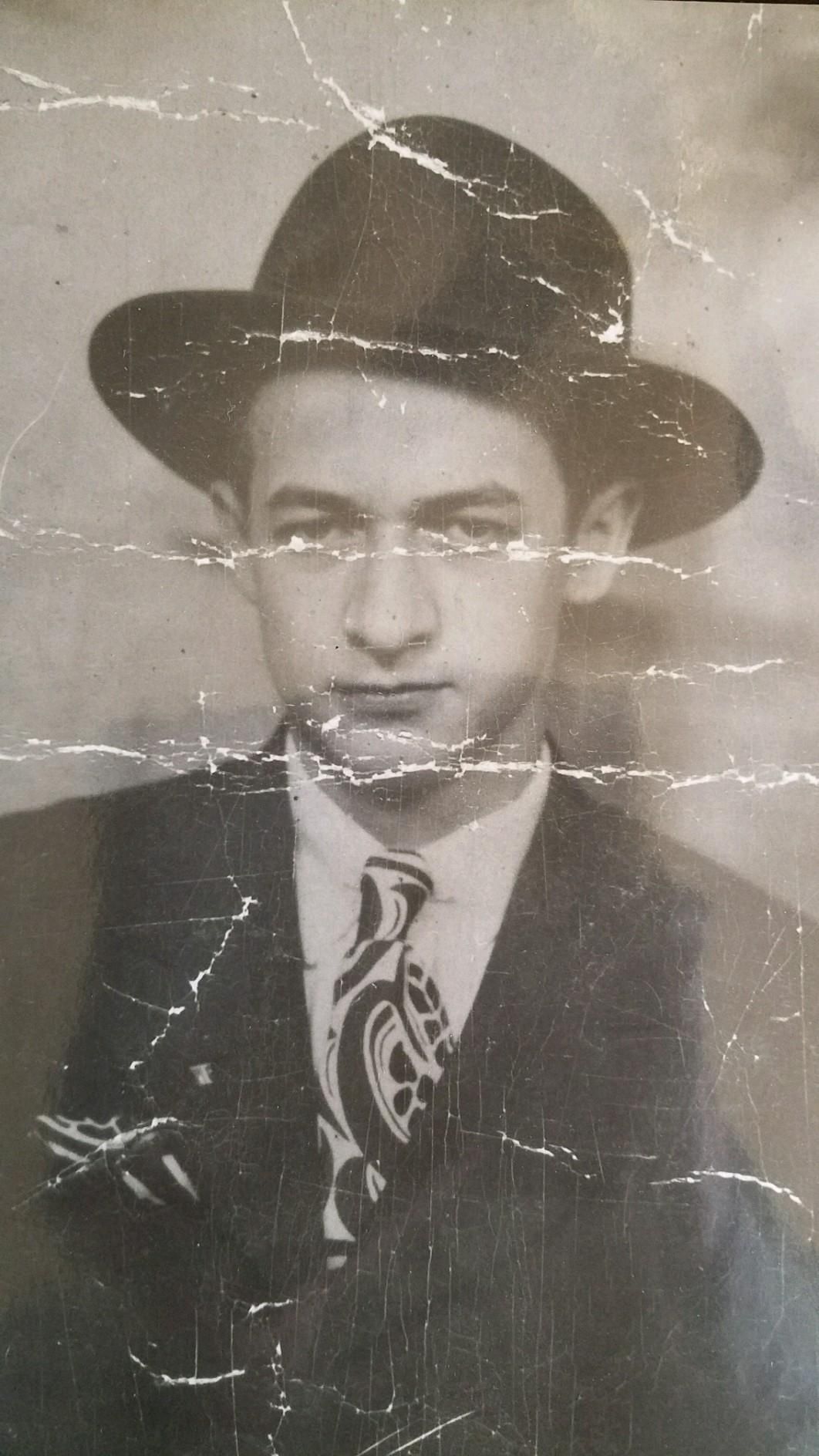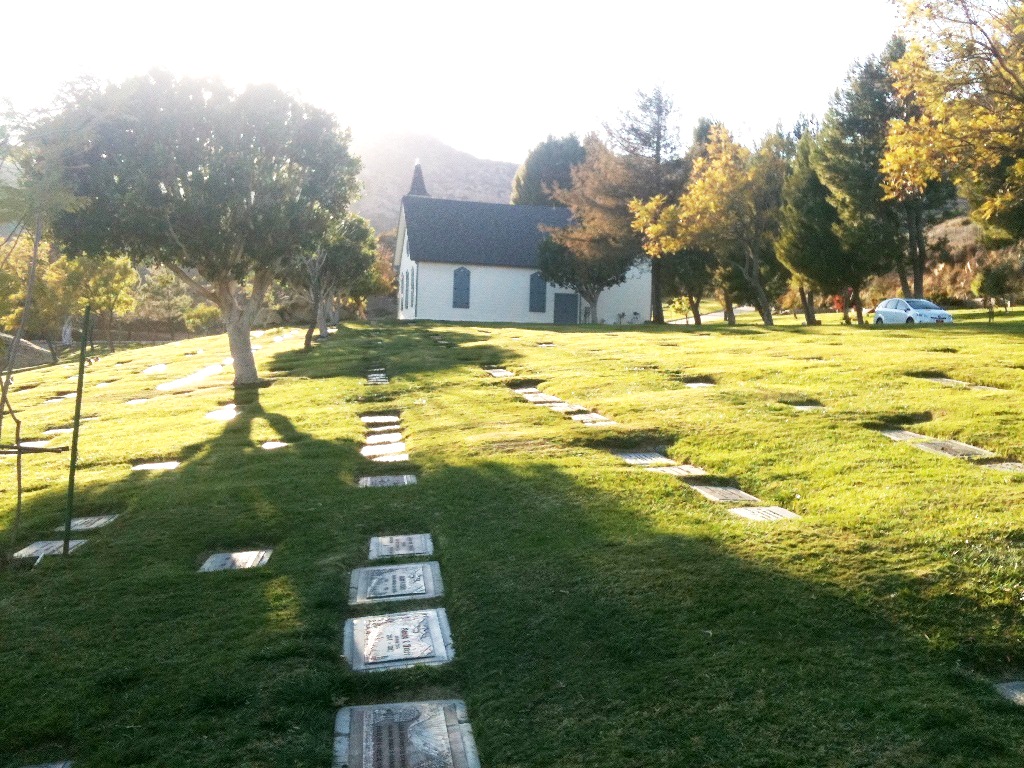His condition eventually came to the attention of a local doctor, who determined that not only did he have a severely damaged leg and hip that had never healed, but that he had contracted a particularly aggressive form of Polio that was further destroying his health. By the age of about six years, very underweight, suffering from severe bone infections, and having to be carried anywhere he went, he was deemed to be incurable and his parents were told that he would not survive for long.
In a last-ditch attempt to help him, the doctor arranged for him to be sent to a children's charity hospital in Louisville, Kentucky where it was confirmed that he was indeed 'incurable' and it was decided to admit him and make him comfortable until the inevitable occurred. This was the height of the Depression, and the hospital's scarce resources were best directed to those who could be helped. By the age of ten he was still languishing in his hospital bed, separated from his family, and still receiving no corrective treatment. The staff still believed that his diseased body would eventually fail no matter what they did, so they went on trying to ease his pain, but doing little else.
He finally decided that if things were going to improve for him, he would have to make it happen himself. It was his extreme anger and frustration that drove him to drag himself, useless legs and all, out of the bed and start to try to pull himself upright. When he fell, he would try again, and in the beginning he fell often. He was continuously scolded by the nurses, who sometimes resorted to restraining him, for risking further injury by getting out of bed. He 'borrowed' crutches from other patients as often as he could, and he eventually gained enough upper body strength to use the crutches to pull himself forward while dragging his legs behind him. Eventually his tenacity convinced the doctors that maybe he could get better and they came up with a treatment plan. After dozens of surgeries, he was finally walking with braces and crutches by the time he entered his teens and he never looked back.
He never wished to be identified by his physical differences, and would enthusiastically correct anyone who would refer to him as handicapped. Although there were times in his life when he was too sick to work, he never took assistance of any kind, because that was for people who needed help, and he never needed it. He never used handicapped parking, preferring to park in the outer fringe of the parking lot and walk, because he feared losing his mobility if he didn't exercise it.
He continued to have ongoing health issues the rest of his life, and he didn't live past his fifties. By the time he left this world, he had had a surgery for almost every year of his life. He was not large in stature, had a rolling walk that would make him stand out from a mile away, and he never took a step without pain; but he worked hard, became a highly-skilled master machinist, and had five children and nine grandchildren who thought he was giant.
His life is a lesson for those who look for reasons to quit. He valued every moment of life and couldn't sit still, cramming a lot of life into the years that he had. He would not allow his children to say that they couldn't do something until they had first tried. When he would hear of someone who was facing a horrible situation in their life, he would rush to give encouragement. He would always say: "it's easy to quit when you can't do things the way other people do them. But if you accept the challenge to find your own way, you will never be disabled".
Written by:
John Boyers JR
His condition eventually came to the attention of a local doctor, who determined that not only did he have a severely damaged leg and hip that had never healed, but that he had contracted a particularly aggressive form of Polio that was further destroying his health. By the age of about six years, very underweight, suffering from severe bone infections, and having to be carried anywhere he went, he was deemed to be incurable and his parents were told that he would not survive for long.
In a last-ditch attempt to help him, the doctor arranged for him to be sent to a children's charity hospital in Louisville, Kentucky where it was confirmed that he was indeed 'incurable' and it was decided to admit him and make him comfortable until the inevitable occurred. This was the height of the Depression, and the hospital's scarce resources were best directed to those who could be helped. By the age of ten he was still languishing in his hospital bed, separated from his family, and still receiving no corrective treatment. The staff still believed that his diseased body would eventually fail no matter what they did, so they went on trying to ease his pain, but doing little else.
He finally decided that if things were going to improve for him, he would have to make it happen himself. It was his extreme anger and frustration that drove him to drag himself, useless legs and all, out of the bed and start to try to pull himself upright. When he fell, he would try again, and in the beginning he fell often. He was continuously scolded by the nurses, who sometimes resorted to restraining him, for risking further injury by getting out of bed. He 'borrowed' crutches from other patients as often as he could, and he eventually gained enough upper body strength to use the crutches to pull himself forward while dragging his legs behind him. Eventually his tenacity convinced the doctors that maybe he could get better and they came up with a treatment plan. After dozens of surgeries, he was finally walking with braces and crutches by the time he entered his teens and he never looked back.
He never wished to be identified by his physical differences, and would enthusiastically correct anyone who would refer to him as handicapped. Although there were times in his life when he was too sick to work, he never took assistance of any kind, because that was for people who needed help, and he never needed it. He never used handicapped parking, preferring to park in the outer fringe of the parking lot and walk, because he feared losing his mobility if he didn't exercise it.
He continued to have ongoing health issues the rest of his life, and he didn't live past his fifties. By the time he left this world, he had had a surgery for almost every year of his life. He was not large in stature, had a rolling walk that would make him stand out from a mile away, and he never took a step without pain; but he worked hard, became a highly-skilled master machinist, and had five children and nine grandchildren who thought he was giant.
His life is a lesson for those who look for reasons to quit. He valued every moment of life and couldn't sit still, cramming a lot of life into the years that he had. He would not allow his children to say that they couldn't do something until they had first tried. When he would hear of someone who was facing a horrible situation in their life, he would rush to give encouragement. He would always say: "it's easy to quit when you can't do things the way other people do them. But if you accept the challenge to find your own way, you will never be disabled".
Written by:
John Boyers JR
Family Members
Sponsored by Ancestry
Advertisement
Advertisement











